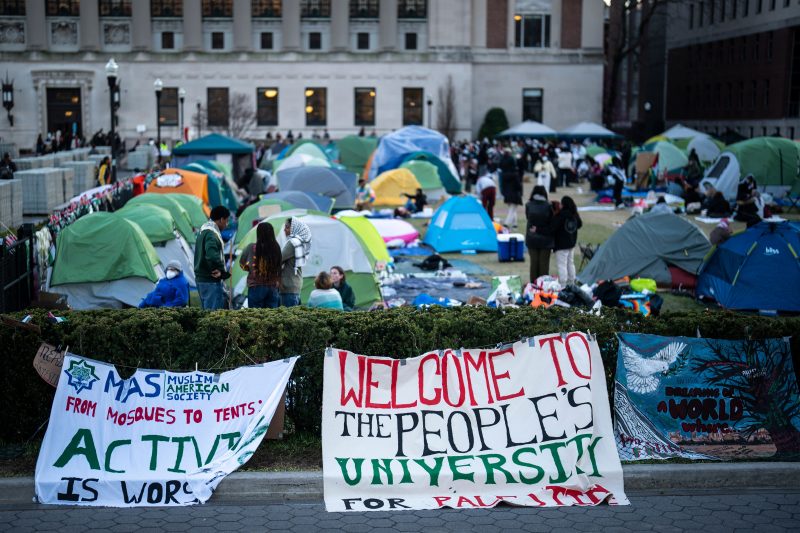In recent months, conservative pundits and Republican politicians have seized on campus protests as a focal point to depict a narrative of chaos and disorder under President Joe Biden’s administration. By closely examining the strategies employed, the underlying motivations, and the potential consequences of this political maneuver, a clearer understanding emerges of the dynamics at play in shaping public discourse and political messaging.
One notable tactic utilized by members of the GOP is to selectively highlight instances of unrest and controversy on college campuses, portraying these events as emblematic of a broader societal breakdown under the current Democratic leadership. By amplifying isolated incidents of student activism, such as protests against controversial speakers or disputes over campus policies, conservatives seek to sow fear and division among the electorate, framing these developments as a threat to traditional values and stability.
In addition to exploiting campus protests for their political advantage, Trump and his allies have also resorted to alarmist rhetoric, characterizing universities as hotbeds of radicalism and leftist indoctrination. This portrayal not only serves to galvanize their conservative base but also contributes to a climate of mistrust and polarisation, further eroding the already fragile social fabric of American society.
Furthermore, by focusing on the perceived excesses of campus activism, the GOP aims to divert attention away from pressing issues such as systemic inequality, economic hardship, and institutionalised racism. Rather than engaging in meaningful dialogue on policies and reforms essential for addressing these persistent challenges, Republicans opt for a strategy of distraction, exploiting cultural flashpoints to provoke emotional reactions and rally support among their constituents.
However, the targeting of campus protests as a means of political manipulation carries significant risks and implications. By stoking societal tensions and promoting a narrative of chaos and disorder, conservative leaders risk exacerbating divisions within the country, undermining trust in democratic institutions, and fueling a cycle of unrest and conflict.
Moreover, the demonisation of student activism and intellectual dissent threatens to stifle critical thinking, innovation, and the free exchange of ideas – essential components of a vibrant and democratic society. By undermining the legitimacy of academic institutions and demonising the voices of the next generation, the GOP risks alienating young voters and marginalising diverse perspectives that are vital for a healthy and inclusive democracy.
In conclusion, the exploitation of campus protests by Trump and the GOP to depict chaos under President Biden’s administration represents a cynical and shortsighted political strategy. Rather than fostering constructive dialogue and addressing the real challenges facing the country, this approach further entrenches partisan divisions, distorts public discourse, and undermines the core values of democracy. Moving forward, it is imperative for citizens to critically evaluate the narratives presented by political leaders and to resist attempts to manipulate and exploit social issues for short-term gain. Only by engaging in informed and thoughtful discourse can we hope to build a more just, equitable, and united society for future generations.


























